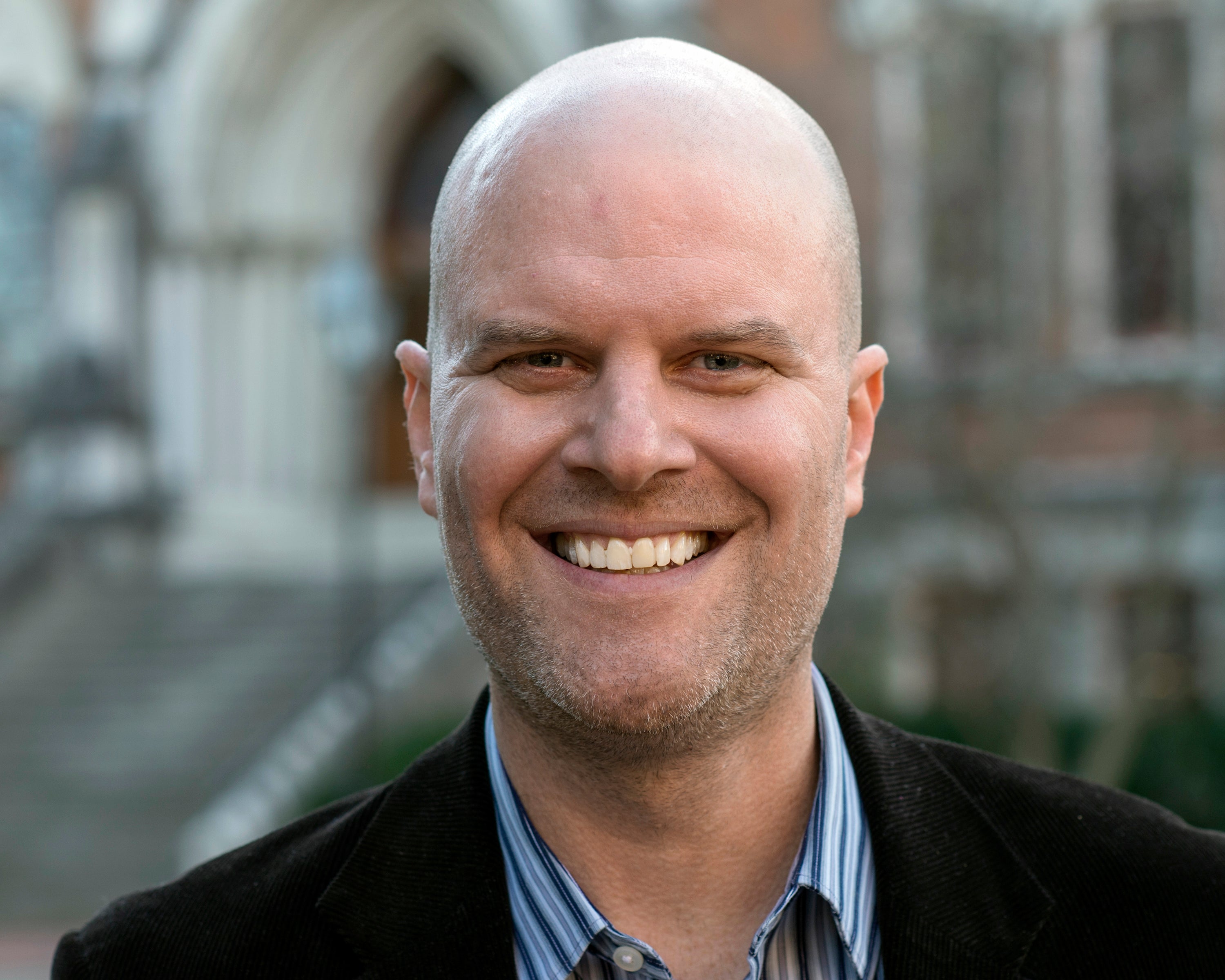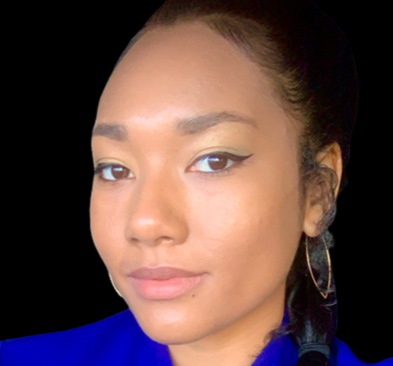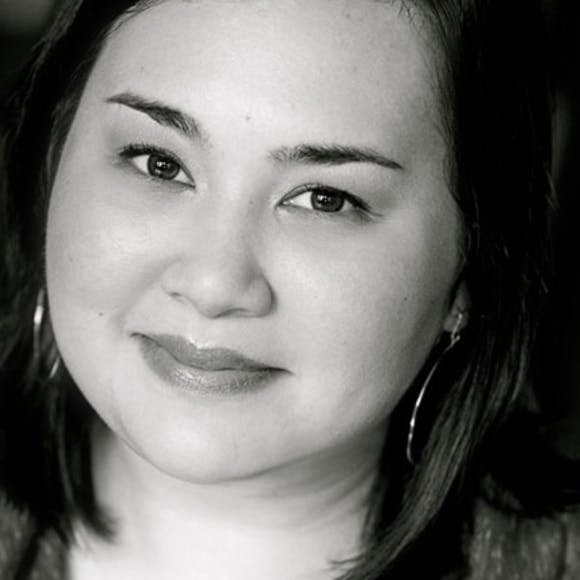Author: Namina Forna
Author Bio:
"Namina Forna is a young adult novelist based in Los Angeles, and the author of the New York Times bestselling epic fantasy YA novel The Gilded Ones. Originally from Sierra Leone, West Africa, she moved to the US when she was nine and has been traveling back and forth ever since. Namina loves telling stories with fierce female leads and works as a screenwriter in LA."
1. How long did it take you to develop the plot concept for “The Gilded Ones”?
This was definitely a book that came in stages. First, there was the dream: When I was in undergrad, I would have these dreams of a girl in golden armor striding onto a battlefield. I didn’t know who she was, but I knew she had a great story.
Years later, I was in film school, and the story just dropped into my head like a ton of bricks: there was a world where a group of girls were considered demons because they bled gold and were stronger and faster than humans. Then actual demons came.
All told, it took me about a year to write the first iteration of The Gilded Ones, but I think the plot had been marinating subconsciously ever since undergrad. I, of course, then tossed the whole thing out and did a page one rewrite in 2018. That took me a month and a half to do. This book has had a journey, I can tell you that.
2. What character do you share the most in common with?
I think I am a combination of Deka and Belcalis. I identify with Deka’s fear and Belcalis’s rage, both of which are common side effects of trauma, which I experienced growing up in Sierra Leone at the beginning of the Civil War, and then once again when I immigrated to America. For the longest time, I was stuck in cycles of fear and rage, which is why I wrote The Gilded Ones.
3. In what ways does “The Gilded Ones” attack patriarchy?
The entire book is an examination of patriarchy: the insidious and the overt ways in which it operates, the systems and people that uphold it, the consequences it enacts upon the people who don’t fall into the norm. I wanted to show people—especially young people—concretely what to look for, so that they wouldn’t keep being bamboozled by patriarchal systems.
4. How different is patriarchy in countries outside of the U.S.?
It’s more brutal, I can tell you that. In Sierra Leone, we have a secret society called Bondo that does female genital mutilation (FGM) on young girls and women. Most of the female population in Sierra Leone has experienced this, but people will tell you that it’s for your own good, that it’ll make you pure. Then there’s the casual misogyny, the expectation that women are just meant to be servants to men. I love my home, but whenever I’m there, I’m just a seething mass of rage all the time.
5. “The Gilded Ones” is rightfully being praised for its ability to eloquently roll out topics such as racism, xenophobia, misogyny, inequality, abuse, and trauma in such a positive and fantastical way. What made the African backdrop such a key element in telling this story?
It was key because while this book is at times painful, I didn’t want it to be a Black pain book. I wanted to show that Deka, my main character, could have a place where she could find other people like her. Girls who were just as powerful and as brave, so she could have adventures with them.
Also, this book is a feminist work, and I wanted to focus on that, which is why I lifted Deka out of a place where her skin color interplayed with her femininity and took her to a place where it didn’t matter what color you were—it just mattered that you were female.
6. Do you agree with this statement, “Feminism is not worth much when it isn't inclusive”? If yes, why? If no, why?
Definitely.
For me, feminism that denies space to others isn’t feminism at all—it’s just another oppressive structure. We saw this during the suffragist movement when white feminists like Elizabeth Cady Stanton espoused virulently racist views, going so far as to call black people things I won’t mention here.
Honestly, I more identify with womanism, but feminism is the catchall term, which is why I tend to use it. The reality is, I’m a Black woman. My Blackness and womanhood are inextricably intertwined and determine how I experience the world. I don’t get to leave either one at the door. It’s the same for other people as well. For me, feminism means nothing if we’re not giving the same energy to our BIPOC, gender diverse, queer and trans family as well.
7. What can young boys and young men learn about themselves while reading “The Gilded Ones”?
They can learn how patriarchy affects them. One of the things that’s not really spoken of is the fact that patriarchy is detrimental to boys as well as girls because it strips them of their emotional inner life and enforces a thousand expectations upon them. Boys are told that men don’t cry, that they must be providers, that they must be strong, must be protectors, etc. There are a thousand things expected of men, and I don’t think we ever really analyze whether that’s fair or not. Sometimes, I think we focus so much on how much men benefit from the patriarchy that we forget that they suffer too.
Young boys and men can also learn how they are complicit in patriarchy, and how to do their part in dismantling it. As I’ve stated, patriarchy benefits men. This is the truth of it. We can go into how this isn’t true for all men, and how wealthy older white men benefit the most, but for the most part, this is a system made to benefit men. In reading this book, young boys and men can see the ways in which they bolster this system and learn what they can do to push back against it.
8. As the writer, what was the most fun part about writing this story? And what was the most challenging?
The fight scenes! I love a good fight, and there’s a lot of that in this book. The most challenging thing to do, however, was write the emotional scenes, because those came from a deep and true place, and that isn’t always an easy thing to do.
9. How did your experience at Spelman College prepare you to face the systemic racial inequalities in America?
I’m an immigrant, so I believed, as everyone else did, the myth of American meritocracy. I thought that if you were the best at what you did, if you were passionate, you would get there. This was not my experience.
I’m so thankful I went to Spelman because it gave me the words to understand racial inequality. It gave me the tools to see it for what it is, so that when I went into the outside world, I could call it out. This was invaluable, because, again, as an immigrant, you don’t necessarily understand all these things. When you grow up in a country where everyone looks like you, racism isn’t a factor. Spelman prepared me for the reality I would face outside its gates.
10. What dorm did you live in your Freshman year at Spelman?
LLC1!! How did y’all know!!!!
11. Is chivalry dead?
I certainly hope so. Chivalry is based on the antiquated notion that women need protecting and men don’t. I’d prefer, rather, that everyone is kind to everyone else. Also, men need doors opened for them too, just saying.
12. What’s your best advice for getting over writer’s block?
Do something else. Put aside whatever you’re working on and go out, see a movie, experience life for a couple of days. Then come back to it.
13. What’s the best book you have read this year so far?
Ace of Spades by Faridah Àbíké-Íyímídé. No contest.
14. What’s the best advice you have ever received on happiness?
Remain in the present. Life happens at its own pace. Enjoy what you have now. Savor the little things now. Don’t borrow problems from the future when you can have today.
15. Do you plan on writing more books in the future?
Of course! I’ll never stop writing. If I’m lucky, I’ll keel over on my laptop when I’m very, very old, having just written these words, “The end.”
Places To Find More From This Author:
Instagram: @namina.forna
Twitter: @NaminaForna
Website: naminaforna.com
Get Your Copy of The Gilded Ones Today!








